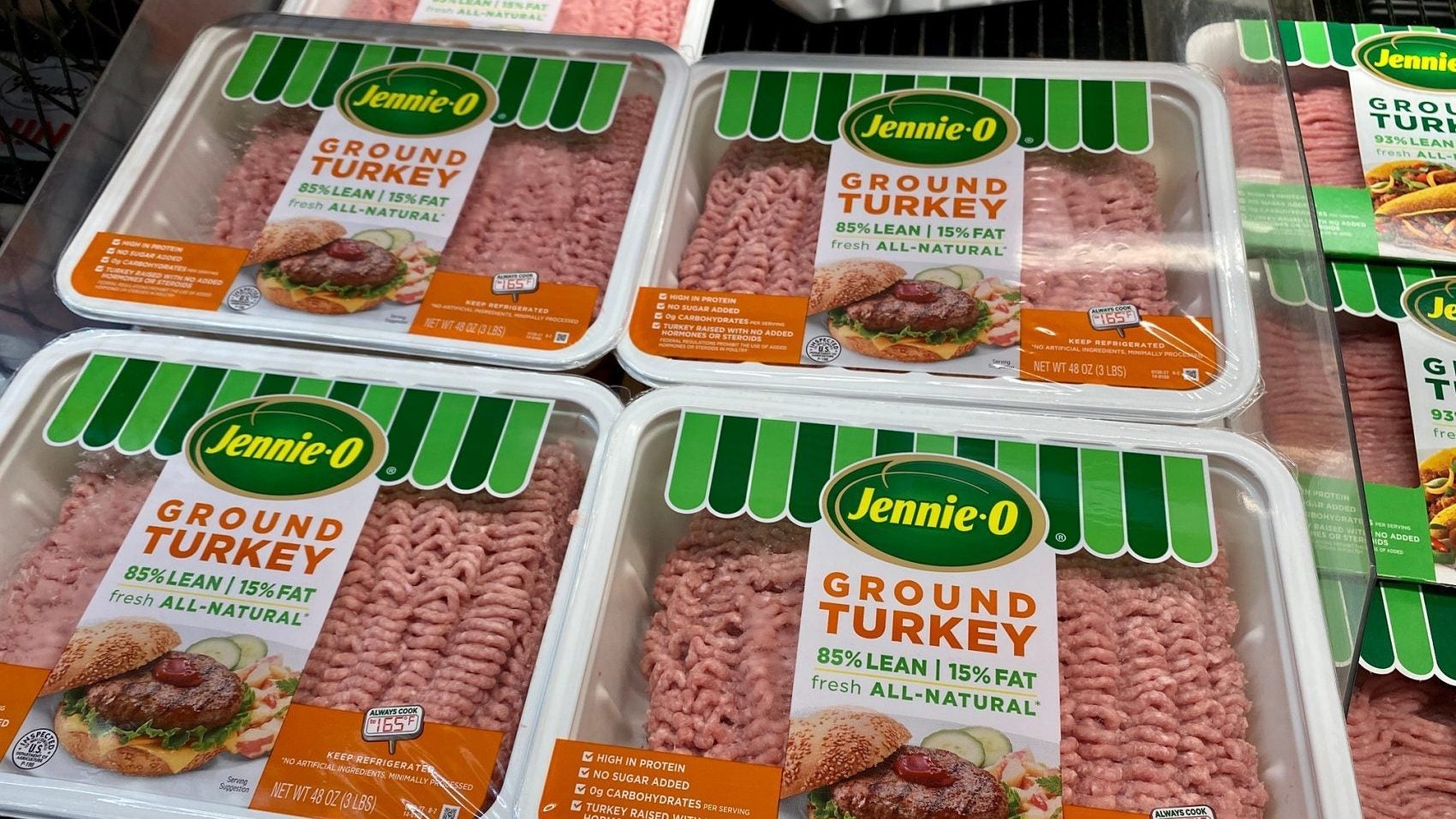
Hormel Foods is braced for another “volatile” year, characterised as a “complex and high-cost environment”.
The remarks by chairman, president and CEO Jim Snee on the US food firm’s annual results call yesterday (30 November) offer little solace inflationary pressures will ease in fiscal 2023. Packaging, energy and labour costs are expected to remain high, while protein prices are likely to be “volatile”, Snee said.

Discover B2B Marketing That Performs
Combine business intelligence and editorial excellence to reach engaged professionals across 36 leading media platforms.
Bird flu, or “highly pathogenic avian influenza” (HPAI) as Hormel calls the disease, will continue to weigh on the company’s volumes through the first half of the new year. The virus appeared in Hormel’s supply chain in March, leading Snee to warn in June of a “meaningful impact on industry poultry supplies”. It then re-emerged during the autumn.
Snee said in his presentation yesterday: “We expect a recovery in turkey volumes in the back half of the year, allowing our teams to continue to create a demand-oriented and optimised turkey portfolio. This is heavily dependent on any future impacts to the supply chain from HPAI.”
Volumes in Hormel’s Jennie-O Turkey Store business dropped 27% in organic terms in the year to 30 October, while sales were down 8%. However, profit for the division was up 149%.
Hormel Foods’ moves on prices
Snee said further pricing has not been factored into the 2023 overall group outlook, which envisages sales rising 1-3% to US$12.6bn-$12.9bn. The annual print reported yesterday was $12.5bn, a reported increase of 9% and 6% on an organic basis.

US Tariffs are shifting - will you react or anticipate?
Don’t let policy changes catch you off guard. Stay proactive with real-time data and expert analysis.
By GlobalData“We expect that the pricing actions taken over the past few quarters should result in a benefit to net sales in fiscal 2023. However, we have also accounted for additional impacts from elasticities as these new pricing actions are adopted in the marketplace,” Snee said.
Pricing increases were made in the fourth quarter on products in Hormel’s grocery division – housing products like Skippy peanut butter – in the Jennie-O Turkey Store business unit and on the chilled side in pepperoni.
Snee added during the Q&A session: “We’ve taken significant pricing but haven’t quite covered down all of the inflation that we’re seeing. We’re being very sensitive to some of the price gaps that are out there in the [grocery] category so we’ve had to watch that closely. But, as always, we’re going to have to be very, very strategic.”
Questioned on the pricing impact on volumes, or consumer demand, Snee said it varies by category.
“We’ve got some categories where the elasticities are performing at more historical levels but then we’ve got some others where we’re seeing elasticity – but not quite to the rate that we would have historically. The thing that is positive for us is we’re not seeing anything above historical levels for elasticity.”
Finance chief Jacinth Smiley provided some insight on the price challenges ahead, while Snee emphasised a plan to boost spending on advertising and brand investment to “help mitigate risk to our retail volumes”.
Smiley said: “Protein prices are expected to remain volatile in fiscal 2023. We expect packaging, energy and labour costs to remain elevated or increase in 2023, and for upstream challenges to persist.”
She noted the Hormel “team has done an exceptional job managing through disruptions caused by HPAI”.
However, Smiley added: “HPAI has re-emerged this fall and this unprecedented event has affected our vertically-integrated supply chain at about one-third of the magnitude of the spring event. We now anticipate the impacts for HPAI to reduce production volume in our Turkey facilities through at least the first half of fiscal 2023. Breast meat prices remain historically high and have yet to moderate.”
Snee alluded to potential M&A outside of the US for the newly reorganised business, which was reshuffled in August around retail, foodservice and international. The revised model will be reflected in Hormel’s results from 31 October.
“Our international business is expected to be a significant growth driver for the company,” Snee said yesterday. Smiley added Hormel is “continuing to look at opportunities from an M&A perspective”.
Asked for further insight, Snee responded: “We are still very interested in international opportunities. So international certainly remains a key area for us as we’re thinking about the acquisition front.”





